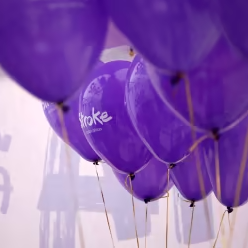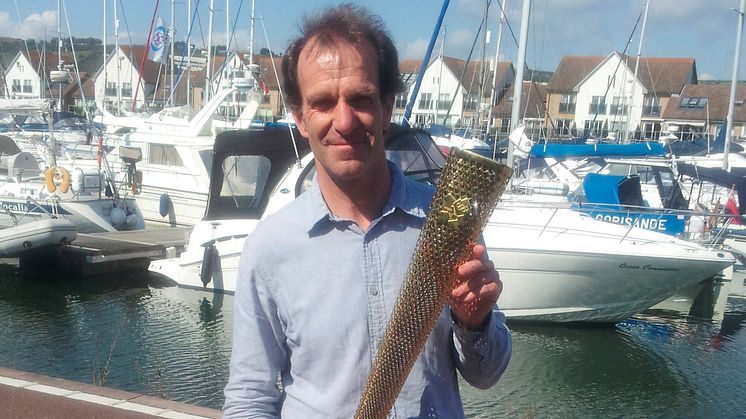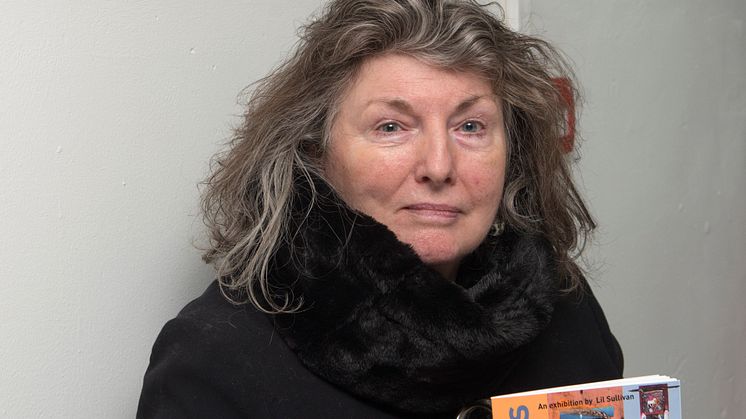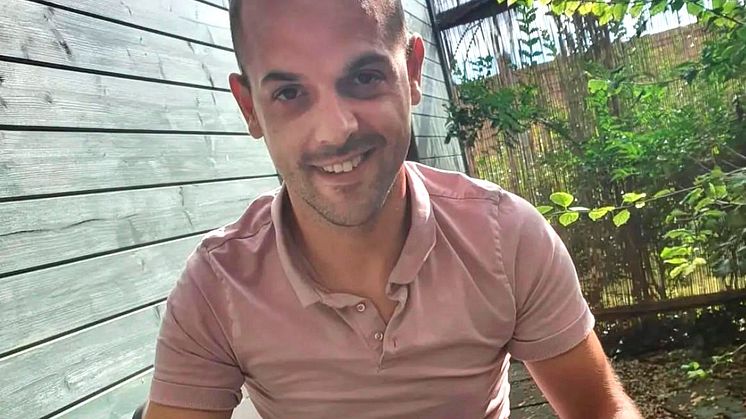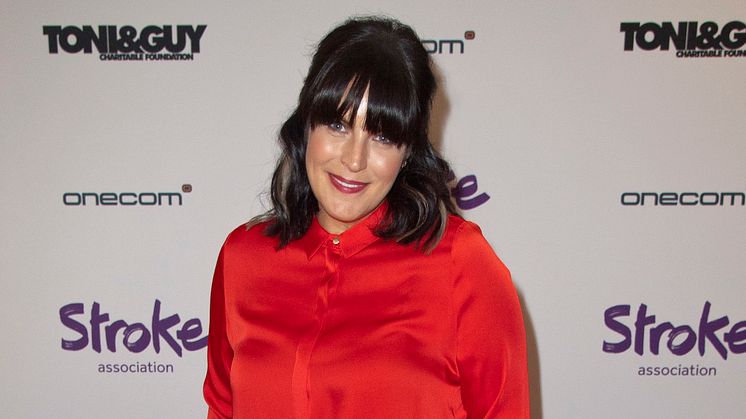
Press release -
Stroke Prevention Day 2022: Nine out of ten stroke survivors would warn their younger self to change their lifestyle
Nine out of ten stroke survivors would go back in time and urge their younger self to make lifestyle changes which may have prevented their stroke, a new UK-wide survey by the Stroke Association has revealed.
More than four out of five people surveyed say they hadn’t realised that they were at risk of a stroke.
But almost nine out of ten had since made lifestyle changes. This is important to the two in five people who may go on to have a second stroke1.
The charity has released the findings to mark Stroke Prevention Day, on Friday 14 January, and is urging everyone to make one small change to reduce their own risk of stroke. Stroke is one of the leading causes of adult disability and the fourth biggest cause of death in the UK. While some strokes are unavoidable, up to nine out of ten are linked to lifestyle and could be preventable if people are aware of the risks and able to make changes2.
The campaign is backed by Anna Richardson, host of TV’s Naked Attraction and Changing Rooms, who herself vowed to get healthier after her father Jim had a series of strokes.
Anna said:
“Sadly, my dad has had a number of strokes and seeing him have to cope with the effects has definitely made me more aware of my own mortality and given me a real determination to stay as fit and healthy as possible.
“When I found out that up to 90% of strokes can been prevented by making healthier lifestyle choices, it certainly gave me the nudge I needed to overhaul my own lifestyle. The consultant at dad’s hospital even told me I must get healthier!
“Unfortunately, both mine and my brother’s cholesterol is on the high side and knowing that my dad’s high blood pressure was likely one of the biggest factors for his strokes, I am so careful about keeping my blood pressure in check.
“To further help reduce my risk I have a checklist I like to try to stick to, reducing salt in my cooking, limiting alcohol, trying to avoid too much saturated fat, and I aim to do 30 minutes of exercise everyday – be that walking, cycling or maybe some yoga.”
The leading change survivors would urge their younger self to make, would be to reduce stress levels with 46% saying they would have done this. Other changes stroke survivors would have made include:
- Monitor blood pressure – 37%
- Exercise more – 32%
- Eat more healthily – 32%
- Lose a set amount of weight (for example one stone or ten kilograms) – 28%
- Stop smoking – 25%
- Drink less alcohol – 24 %
- Monitor high cholesterol – 22%
- Reduce salt intake – 17%
As a first step, the Stroke Association wants people to make one small change to reduce their risk of stroke, starting on Stroke Prevention Day.
Examples include:
- Having your blood pressure, cholesterol and pulse checked regularly
- Stopping smoking
- Having a number of alcohol-free days each week
- Changing your diet to include less salt or switching to a reduced sodium alternative such as LoSalt®
- Eating more fruit and vegetables
- Getting up and moving regularly during the day, especially if you’re working from home
- Joining an online exercise or activity group, or better still, taking on the charity’s Stride for Stroke challenge – one step for each of the 1.3 million stroke survivors in the UK.
Juliet Bouverie OBE, Chief Executive at the Stroke Association said: “A stroke happens in the brain, the control centre for who we are and what we can do. It can happen at any time and at any age and can be devastating.
“We know not all strokes are avoidable, but as many as nine out of ten strokes could be prevented as they are linked to things you can change or manage. Many people simply don’t realise they are at risk and that’s something that we as a charity desperately want to put right.
“The effects of a stroke can be life-changing for you and your family, so why not do all you can to avoid one yourself?
“However, we know that it isn't always easy, so pick something that’s manageable for you. Aim to stick with it for an initial three months and, if you can do that, you’re more likely to form a regular habit.
“The good news from this research is that almost nine out of ten stroke survivors have already taken steps to reduce their risk of having another stroke.”
The charity’s campaign has been launched in partnership with LoSalt®.
Almost a third of stroke survivors said they would exercise more and an ideal way to motivate yourself is to sign up for the Stride for Stroke challenge. Find out about this and the other things you can do at www.stroke.org.uk/stroke-prevention-day. Money raised will help the charity’s work supporting stroke survivors and carers across the UK.
ENDS
For more information, please contact Martin Oxley, PR & Media Officer at the Stroke Association at martin.oxley@stroke.org.uk or 07770 733822.
Notes to editors
About the research
Statistics based on a UK-wide survey of 5,330 stroke survivors, conducted by the Stroke Association in December 2021.
In addition to asking stroke survivors what changes they would urge their younger self to make, we also asked what changes they had made to reduce their risk of a second stroke. The top answers were:
Monitor blood pressure |
52% |
Eat more healthily |
46% |
Reduce stress levels |
44% |
Exercise more |
36% |
Drink less alcohol/give up alcohol |
36% |
Lose weight |
33% |
Monitor cholesterol |
29% |
Reduce salt intake |
25% |
Stop smoking |
19% |
Please note that if you take some types of medication that affect potassium levels, LoSalt® and other reduced sodium salt alternatives may not be suitable for you. This includes people receiving medication for diabetes, heart or kidney disorders. Check with your GP for advice.
References
1: The risk of recurrent stroke is 26% within 5 years of a first stroke and 39% by 10 years. NICE guideline [NG128] Published: 01 May 2019
2: Global and regional effects of potentially modifiable risk factors associated with acute stroke in 32 countries (INTERSTROKE): a case-control study, VOLUME 388, ISSUE 10046, P761-775, AUGUST 20, 2016
Related links
Topics
Categories
About the Stroke Association
- Stroke strikes every five minutes in the UK and it changes lives in an instant.
- The Stroke Association is a charity working across the UK to support people to rebuild their lives after stroke. We believe that everyone deserves to live the best life they can after stroke. From local support services and groups, to online information and support, anyone affected by stroke can visit stroke.org.uk or call our dedicated Stroke Helpline on 0303 3033 100 to find out about support available locally.
About LoSalt®
For further information on LoSalt visit www.losalt.com
The leading brand of reduced sodium salt in the UK
Manufactured in Scotland, Klinge Foods Ltd expertly blends two natural mineral salts (potassium chloride and sodium chloride) to produce LoSalt.
Excess levels of sodium in our diet (the main source being salt) is linked to high blood pressure (hypertension), a major risk factor for heart disease and stroke. Not enough potassium in the diet is also a contributor to hypertension
At a population level, the potential benefits of using potassium-based sodium replacers to help reduce sodium in foods outweigh the potential risks (SACN-COT report, Nov. 2017). An increased potassium intake may reduce blood pressure, decrease risk of cardiovascular disease, have beneficial effects on bone-mineral density, and mitigate the negative consequences of high sodium consumption (World Health Organisation, Potassium intake for adults and children report, 2012).
A simple switch, LoSalt is used in exactly the same way as you would other salts – in cooking, baking or at the table
Launched in 1983 it is sold in 30 countries worldwide.







